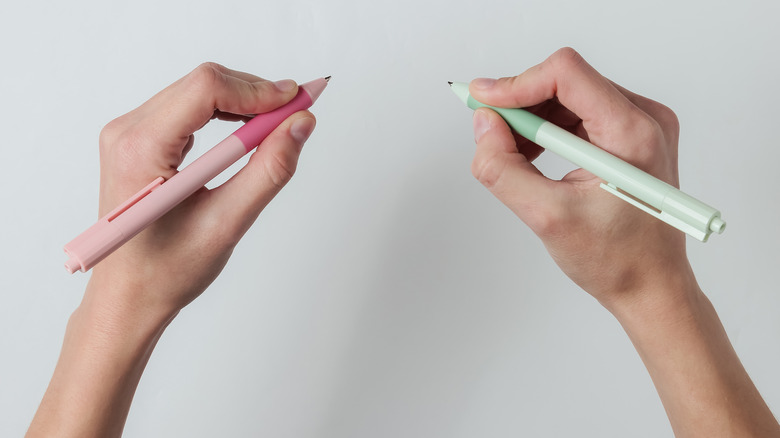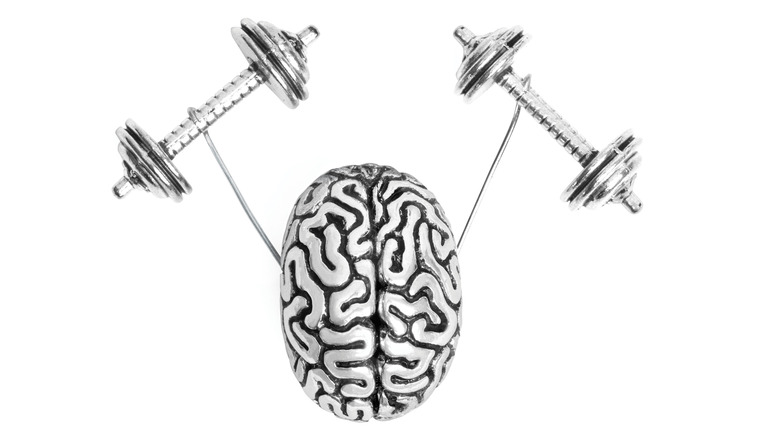How Using Your Non-Dominant Hand Can Make Your Brain Stronger
Hand dominance cannot simply be attributed to genetics alone. With as many as 40 genes thought to play a role in hand preference, cultural influences, environmental factors, and pure happenstance are also thought to affect handedness, reports MedlinePlus. While we may feel more at ease using one hand over the other for everyday tasks, experts say there may be brain benefits to be gained from implementing regular use of our non-dominant hand.
As tricky as it may be, neuroscientist Kristen Willeumier says that writing with your non-dominant hand can serve as a workout for your brain, stating via Mindbodygreen, "New learning is about stepping outside of your comfort zone. We like to call it stretching your neurons." As your brain begins to forge new neural connections, Dr. Willeumier states that the use of your opposite hand may begin to extend comfortably into other daily tasks such as drinking or brushing your teeth.
Non-dominant hand usage may have cognitive and mental health benefits
Along with neurological health, non-dominant hand use may potentially benefit our mental health too. Through brain scanning technology, science has shown that those with tendencies towards aggression show overactivity in brain regions associated with self-control. A 2012 study published in Current Directions in Psychological Science used non-dominant hand usage as a means to practice self-control. For two weeks, participants were asked to utilize their non-dominant hand for everyday activities that would normally be practiced with their dominant hand such as "using the mouse, stirring your coffee, [and] opening doors," stated psychologist and co-author of the research Thomas F. Denson (via Science Daily).
At the end of the study, it was found that engaging in the practice increased self-control amongst participants, as shown by decreases in aggressive responses when participants were emotionally prompted with verbal insults. In learning to use our non-dominant hand as we go about our day, not only may we increase our cognitive health, but we may find ourselves better able to regulate our emotions, contributing to overall mental wellness.


